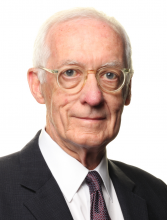But it’s all too costly
Financial constraints are often cited as a reason not to focus on bias, discrimination, bullying, and harassment in the workplace or to shelve initiatives, but it’s a false argument, say Dr. Mack and Dr. Douglas.
“One of the case examples is a cardiology practice that is suffering a decline in finances, and the board makes the recommendation that the efforts at diversity and civil workplaces need to be the first to go,” Dr. Mack explained. “And the point that’s being made in this is you can’t afford not to do it because it ends up being more costly to the business in the long run.”
Part of that cost is associated with losing valuable employees that were contributing but left because there wasn’t a culture of respectfulness and positivity in their workplace. While that’s always been a risk, it’s become a particularly compelling issue because of the workforce shortages present 3 years on in the pandemic, he said.
“There’s a new reexamination to be sure that we have a positive work environment that people want to come to work at every day,” he said. “I run our Research Institute, and normally we have a 5% vacancy rate, and our unfilled-position rate is 25% right now.”
Health care is delivered as a team today, but if a member feels disrespected, or worse – harassed, bullied, or discriminated against – they’re not going to contribute at the top of their game, Dr. Douglas said.
“It’s very well documented that bad behavior exists and that it has negative consequences for patient care for institutions, who are at great risk legally and regulatory wise,” she said. “And the document makes that clear that that risk is increasing.”
Dr. Douglas pointed out that the Joint Commission now requires good behavior in institutions that it accredits and that the Accreditation Council for Graduate Medical Education requires education around professionalism and evidence that their trainees are treated as professionals.
Funding agencies like the National Institutes of Health have also jumped into this space, recently establishing a hotline to report harassment, discrimination, and bullying perpetrated by an NIH-funded investigator, and giving institutions 30 days to investigate.
“In the last 2 years they have defunded, taken away the grants of 75 investigators, compared to zero in the 5 years before that,” Dr. Douglas said. “So I think, even though the bad behavior may be escalating, the consequences are escalating too.”
The new “2022 ACC Health Policy Statement on Building Respect, Civility, and Inclusion in the Cardiovascular Workplace” will be discussed in a session at the ACC 2022 Scientific Sessions on April 2 at 4:15 p.m. ET.
A version of this article first appeared on Medscape.com.


